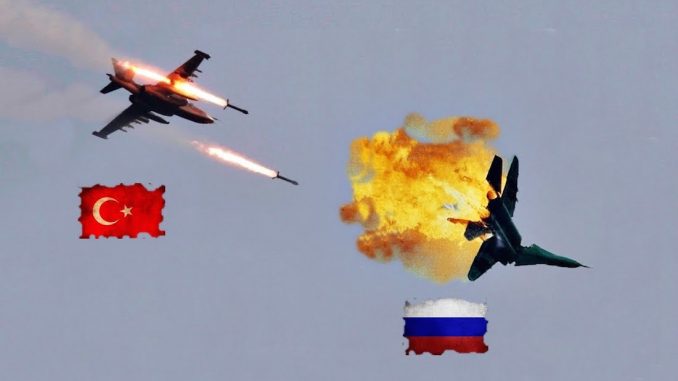
As Turkey and Saudi Arabia threaten to invade Syria, a source close to President Vladimir Putin has warned that any such action will spark a nuclear war with Russia.
According to Robert Parry – the investigative reporter who broke the Iran-Contra story:

BYPASS THE CENSORS
Sign up to get unfiltered news delivered straight to your inbox.
You can unsubscribe any time. By subscribing you agree to our Terms of Use
Latest Video
A source close to Russian President Vladimir Putin told me that the Russians have warned Turkish President Recep Tayyip Erdogan that Moscow is prepared to use tactical nuclear weapons if necessary to save their troops in the face of a Turkish-Saudi onslaught. Since Turkey is a member of NATO, any such conflict could quickly escalate into a full-scale nuclear confrontation.
Washingtonsblog.com reports:
Washington’s Blog asked one of America’s top experts on Russia – Stephen Cohen, professor emeritus of Russian studies and politics at New York University and Princeton University, and the author of a number of books on Russia and the Soviet Union – what he thought of Parry’s claim.
Cohen said:
Parry is a serious man [“serious” is the highest compliment that an insider can give to someone]. I cannot say it will lead to nuke war, but it is very dangerous, as is quadrupling US/NATO forces near Russia’s borders.
Pavel Felgenhauer – a leading Russian military analyst – also believes that a nuclear war is “very likely” to arise from Russia’s skirmishes with Turkey in Syria.
Last December, U.S. Congresswoman Tulsi Gabbard – a Member of the House Armed Services Committee, Iraq war veteran, and Major in the Hawaii Army National Guard – warned that U.S. policy in Syria could lead to a nuclear war.
Also in December, retired Lieutenant General Robert Gard, chairman emeritus of the Center for Arms Control and Nonproliferation, retired Brigadier General John H. Johns, professor emeritus from US National Defense University, and Leslie Gelb, president of the Council on Foreign Relations, penned an article in Foreign Policy calling for US-Russia cooperation to de-escalate current tensions and diffuse the increasing worrisome nuclear blustering.
American security expert Bruce Blair – a former nuclear-missile launch officer – notes that Turkey’s downing of the Russian warplane at the Syrian-Turkish border “fits a pattern of brinkmanship and inadvertence that is raising tensions and distrust between Russia and US-led NATO,” and that “this escalation could morph by design or inadvertence into a nuclear threat.”
Blair writes that the threat of nuclear war is higher now that during the Soviet era:
Russia has shortened the launch time from what it was during the Cold War. Today, top military command posts in the Moscow area can bypass the entire human chain of command and directly fire by remote control rockets in silos and on trucks as far away as Siberia in only 20 seconds.
Why should this concern us? History shows that crisis interactions, once triggered, take on a life of their own. Military encounters multiply; they become more decentralized, spontaneous and intense. Safeguards are loosened and unfamiliar operational environments cause accidents and unauthorized actions. Miscalculations, misinterpretations and loss of control create a fog of crisis out of which a fog of war may emerge. In short, the slope between the low-level military encounters, the outbreak of crisis and escalation to a nuclear dimension is a steep and slippery one.
(Indeed, the U.S. and Soviets came within seconds of all-out nuclear war on numerous occasions. And only the courage of U.S. and Soviet individuals to say no when their superiors told them to fire nuclear weapons – in the face of mistaken readings – saved the planet from nuclear war.)
Russia expert Stephen Cohen agrees that the risks of nuclear war are much higher than people know, telling the Commonwealth Club last year that the threat of nuclear war with Russia is now greater than it was with the Soviets.
Former U.S. Secretary of Defense William Perry agrees that the risk of nuclear war is higher than during the Soviet era.


